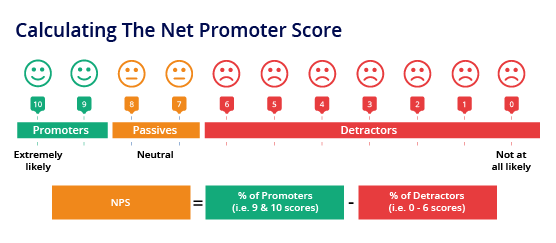- Contents
In the digital age, customer satisfaction is paramount and tied to online review platforms. In this landscape, businesses and organizations must actively manage their online reputation because there is an ongoing discourse about their services that can significantly impact revenue.
Customer website reviews are feedback and assessments provided by individuals who have used or interacted with a particular website. These reviews are typically written by customers, users, or visitors of a website and are meant to share their experiences, opinions, and observations regarding various aspects of the site, product/service. Customer website reviews serve several purposes, including helping other potential users make informed decisions, providing valuable feedback to companies/organizations, and contributing to the website’s overall reputation.
Here’s a breakdown of what customer website reviews typically involve:
1. User Experience and Usability Feedback:
Customers often comment on their overall experience when using a website. They may discuss aspects like ease of navigation, clarity of content, and the overall satisfaction of their visit. These reviews help potential users understand what to expect regarding user-friendliness and the quality of the website’s design and layout.
A customer review might mention that a travel booking website was easy to navigate and made the booking process straightforward and seamless.
2. Product or Service Reviews:
Customers often review specific products or services offered on an e-commerce or informational website. They may rate and comment on these offerings’ quality, features, and value. Product or service reviews assist other customers in making purchasing decisions by providing insights into real-world experiences.
A customer might leave a review on an online electronics store, discussing their satisfaction with a smartphone’s performance and battery life.
3. Customer Support and Service Quality:
Customers may comment on their interactions with the website’s customer support team, discussing responsiveness, helpfulness, and overall satisfaction with the support received. These reviews can help potential customers gauge the level of customer service and support they can expect when dealing with the website.
A customer might leave a review for a software company, praising their prompt and helpful customer support in resolving technical issues.
4. Security and Privacy Concerns:
Customers may express concerns about a website’s security and privacy practices, particularly if they encounter issues like data breaches or spam. These reviews can alert other users to risks or issues related to their personal information and online security.
A customer review might caution others about a social media platform’s privacy practices and data handling.
5. Recommendations and Tips:
Customers may offer recommendations, tips, or suggestions for getting the most out of the website or avoiding common pitfalls. These reviews can provide valuable insights and guidance to other users, helping them optimize their experience.
A customer review for a recipe website might include tips for making a particular dish and recommend trying a specific variation.
However, in the quest to gauge customer satisfaction, the question arises: Do businesses still need to invest time and effort in soliciting direct customer feedback, given the prevalence of online reviews? The indisputable answer is yes, and here’s why.
The Limitations of Solely Relying on Review Websites
While review websites can offer valuable insights, relying solely on them as a feedback mechanism has its drawbacks:
- Difficulty in Collating and Utilizing Feedback: Collating feedback from these platforms into actionable improvements can be cumbersome.
- Lack of Control Over Review Content: Business owners cannot control the topics or aspects that reviewers choose to discuss.
- Speed of Response: Direct feedback enables businesses to respond promptly to issues, whereas reviews may not prompt such swift action.
- Authentication Challenges: The authenticity and reliability of online reviews can sometimes be questionable.
While effective for marketing and showcasing customer service, website reviews may yield unconstructive comments like “I didn’t like the soup” or overly vague praise like “It was awesome.” Such feedback may need to provide more depth for meaningful change.
The Power of Customer Satisfaction Surveys
Customer satisfaction surveys, on the other hand, offer a more targeted and controlled approach to gathering feedback, and they are essential for several reasons:
- Mitigating Public Negative Reviews: Surveys reduce the likelihood of negative reviews surfacing without the business’s knowledge.
- Prompt Resolution of Complaints: Feedback from surveys allows for swift complaint resolution since it is conveyed directly.
- Specific Questioning: Surveys enable businesses to ask specific questions that may not be covered in online reviews, such as menu preferences or the impact of weather on customer choices.
- Direct Engagement and Rapport Building: Conducting surveys with customers helps build rapport and foster a sense of caring.
- Identifying Strengths and Opportunities: Surveys uncover areas where a business excels and pinpoint opportunities to expand services or products.
- Benchmarking with NPS Scores: Implementing Net Promoter Score (NPS) surveys provides clear benchmarks against previous and future scores, allowing for accumulating insights over time.

According to SuperOffice, 91% of customers who are unhappy with a business will leave without complaining. This highlights the importance of customer satisfaction surveys as a proactive way to identify and address issues before they escalate and result in negative reviews. Additionally, research indicates that businesses prioritizing customer experience generate 60% higher profits than those that don’t. By incorporating customer satisfaction surveys into their operations, companies can improve the customer experience and boost their bottom line.
Businesses can steer conversations more effectively by directly engaging with customers than merely relying on review websites. While online reviews are potent marketing tools, customer satisfaction surveys consistently yield feedback that drives meaningful change and improvement.
Collect Customer Feedback in the Emerging Markets with GeoPoll
GeoPoll helps collect and turn customer voices into knowledge and insights that can guide important business decisions and improve brand health through data. With our renowned databases and mobile-based research modes tailored to emerging markets, we have developed platforms and experience to gather impactful consumer data.
Contact us to discuss your customer experience needs and how we can help.
